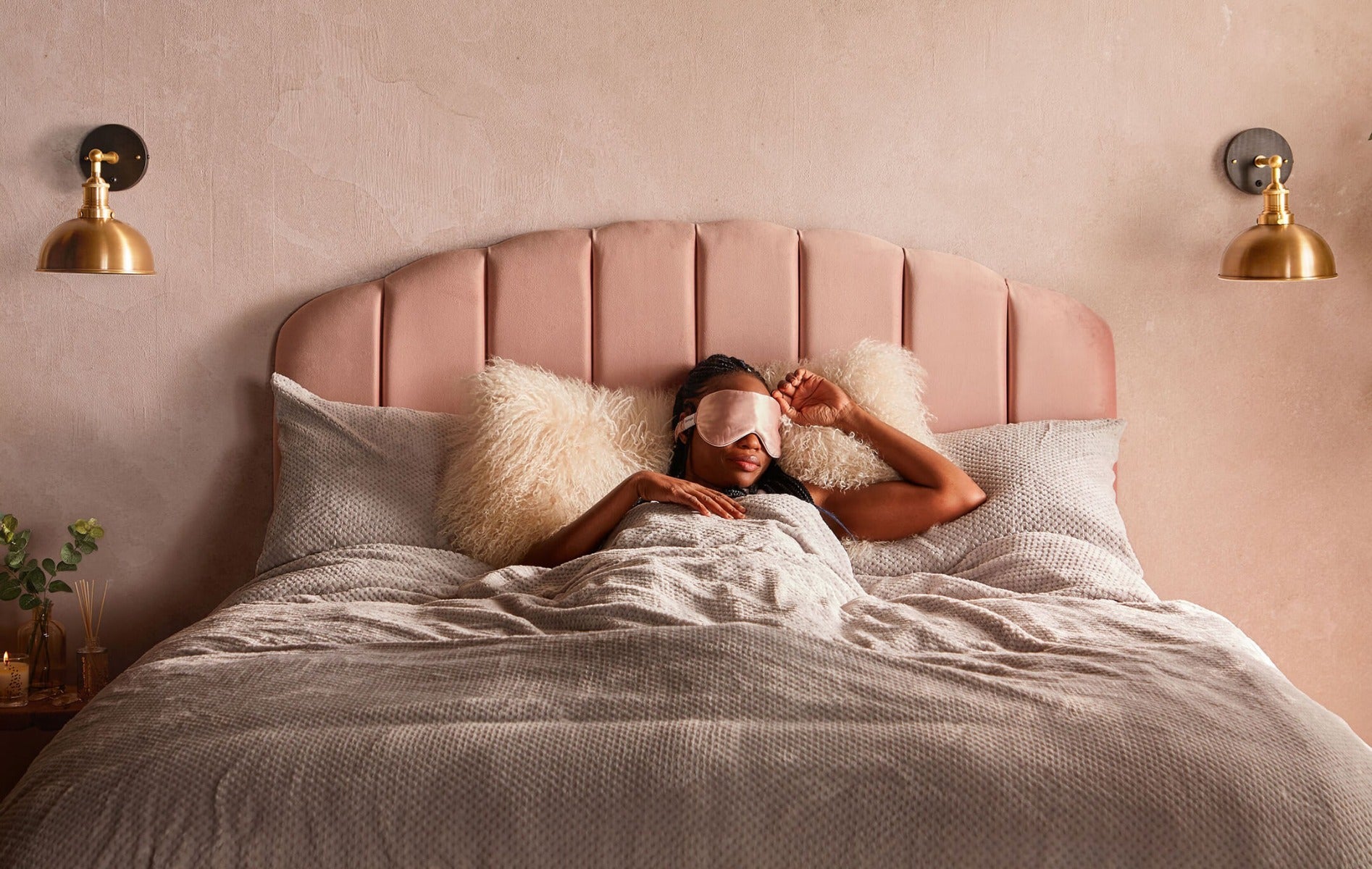
10 Science-Backed Effective Bedtime Routines to Give You More Productive Days ( part 2)
4. Listen to Music or Color Noise
If you like catching up on your playlist before bed, you’re in luck. Numerous studies have shown that listening to music before bedtime, either classical or slow, rhythmic music can help you get to sleep. Music lowers cortisol levels which helps you fall asleep. Along with music, listening to color noise, like white or pink noise is shown to aid in both falling asleep, staying asleep, and increasing time spent in deep sleep. White noise helps mask background and environmental noises that can be disruptive to many and hinder sleep, while pink noise slows brain waves and induces deep sleep.
Tip: Try adding listening to music or pink noise before bedtime as a part of your bedtime routine. A study from 2018 found that 62% of people listened to music to fall asleep. Pink noise, a cousin to white noise, is proven to increase the time spent in deep sleep and help you fall asleep.
5. Turn off the TV
Relaxing with your favorite new show before bed is a favorite pastime. Catching up on the latest episode can end lead to having to catch up on sleep. Numerous studies have shown that watching TV, sleeping with the TV on, or falling asleep to TV can lead to poor sleep. Falling asleep with the TV on can decrease melatonin levels by 22%. Other studies have shown that watching television before bedtime is not harmful as the activity itself is relaxing, especially when watching a familiar show, or comfort tv.
Tip: If you regularly fall asleep to TV, try reading or doing another activity before bed and see if your sleep quality improves. If you aren’t sure about the improvement or decline of your sleep quality when watching or not watching TV, try out a sleep tracking app.
6. Prep for the next day
Getting ready for the next day can sound like an unnecessary chore and added stress, especially if you haven’t recovered from today’s events. Planning out the next day can help you relax at night. An experiment with college students conducted in 2018 found that the students who wrote down their to-do lists for the following day slept better than those who did not. Writing out a list of tasks “off loads” stress about performing the tasks in the future.
Tip: Try writing down a to-do list before bed in either a journal or on your phone. Set a reminder or an alarm at a certain time to remind yourself to look at the list before you start your day to make sure you don’t forget anything.
7. Set an alarm for sleep
Yes, set an alarm or a reminder to let yourself know that it is time to start winding down for bed. Those who have a finely turned internal clock probably won’t have to do this, but if you have an unpredictable schedule or struggle to get to bed at night, this can be helpful. It’s easy to lose track of time when we’re occupied with another activity at home (like watching another episode of the latest show you’re bingeing).
Tip: A bed alarm sounds counterintuitive, but an alarm will help you reinforce the importance of sleep. If you have trouble getting to bed, try an alarm for a few weeks until your body adjusts
If you like catching up on your playlist before bed, you’re in luck. Numerous studies have shown that listening to music before bedtime, either classical or slow, rhythmic music can help you get to sleep. Music lowers cortisol levels which helps you fall asleep. Along with music, listening to color noise, like white or pink noise is shown to aid in both falling asleep, staying asleep, and increasing time spent in deep sleep. White noise helps mask background and environmental noises that can be disruptive to many and hinder sleep, while pink noise slows brain waves and induces deep sleep.
Tip: Try adding listening to music or pink noise before bedtime as a part of your bedtime routine. A study from 2018 found that 62% of people listened to music to fall asleep. Pink noise, a cousin to white noise, is proven to increase the time spent in deep sleep and help you fall asleep.
5. Turn off the TV
Relaxing with your favorite new show before bed is a favorite pastime. Catching up on the latest episode can end lead to having to catch up on sleep. Numerous studies have shown that watching TV, sleeping with the TV on, or falling asleep to TV can lead to poor sleep. Falling asleep with the TV on can decrease melatonin levels by 22%. Other studies have shown that watching television before bedtime is not harmful as the activity itself is relaxing, especially when watching a familiar show, or comfort tv.
Tip: If you regularly fall asleep to TV, try reading or doing another activity before bed and see if your sleep quality improves. If you aren’t sure about the improvement or decline of your sleep quality when watching or not watching TV, try out a sleep tracking app.
6. Prep for the next day
Getting ready for the next day can sound like an unnecessary chore and added stress, especially if you haven’t recovered from today’s events. Planning out the next day can help you relax at night. An experiment with college students conducted in 2018 found that the students who wrote down their to-do lists for the following day slept better than those who did not. Writing out a list of tasks “off loads” stress about performing the tasks in the future.
Tip: Try writing down a to-do list before bed in either a journal or on your phone. Set a reminder or an alarm at a certain time to remind yourself to look at the list before you start your day to make sure you don’t forget anything.
7. Set an alarm for sleep
Yes, set an alarm or a reminder to let yourself know that it is time to start winding down for bed. Those who have a finely turned internal clock probably won’t have to do this, but if you have an unpredictable schedule or struggle to get to bed at night, this can be helpful. It’s easy to lose track of time when we’re occupied with another activity at home (like watching another episode of the latest show you’re bingeing).
Tip: A bed alarm sounds counterintuitive, but an alarm will help you reinforce the importance of sleep. If you have trouble getting to bed, try an alarm for a few weeks until your body adjusts


